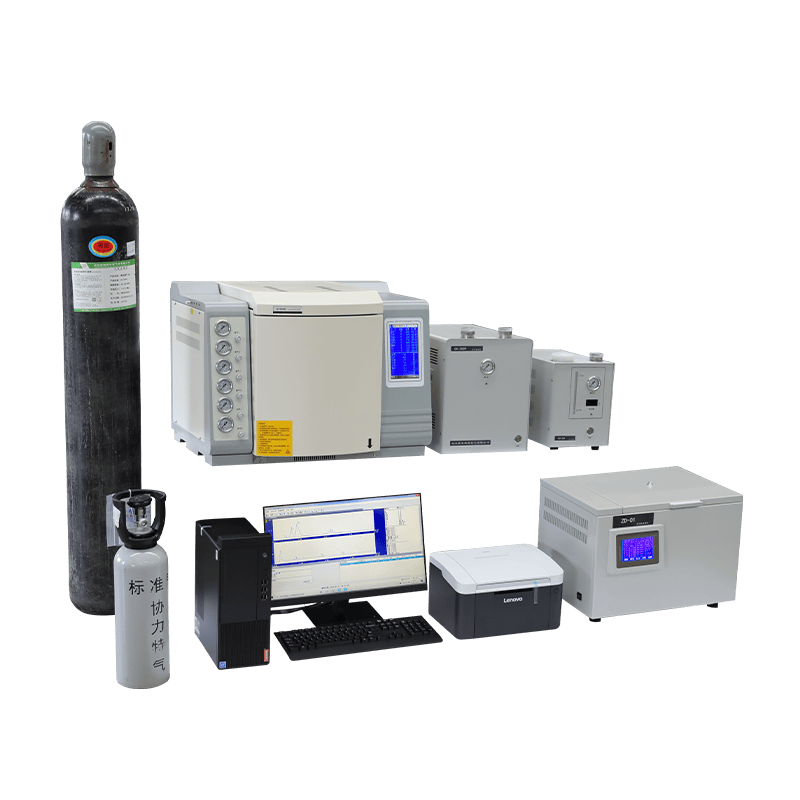Oil chromatography is an important analytical technique, which is widely used in many fields such as chemistry, environmental science and food safety. Its main role is to separate and analyze the different components of complex mixtures, especially in the petrochemical industry, oil chromatography technology is an indispensable tool. This paper will deeply discuss the basic principle, application field and importance of oil chromatography in modern scientific research.
First, the basic principle of oil chromatography
The basic principle of oil chromatography is to use the difference in the distribution of different compounds between the fixed phase and the mobile phase to achieve separation. Specifically, when the sample passes through the column, the components interact with the stationary phase filled in the column, and the different components migrate at different rates, resulting in separation in time. Gas chromatography (GC) and liquid chromatography (HPLC) are commonly used in oil chromatography, among which gas chromatography is widely used in the analysis of petroleum and its derivatives because of its high efficiency and speed.
Second, the application of oil chromatography
1. Petrochemical industry
In the petrochemical industry, oil chromatography is widely used for the composition analysis of crude oil and its derivatives. Through oil chromatography, the content and distribution of various hydrocarbons in crude oil can be obtained, which provides important reference data for the subsequent refining process. In addition, oil chromatography can also be used to detect impurities in petroleum products to ensure product quality and safety.
2. Environmental monitoring
Oil chromatography also plays an important role in environmental monitoring. With the acceleration of industrialization, the leakage and pollution of petroleum and its derivatives are becoming more and more serious. Oil chromatography technology can be used to analyze oil pollutants in water, soil and air, helping environmental scientists assess the extent and scope of environmental pollution, and then develop appropriate treatment measures.
3. Food safety
In the field of food safety, oil chromatography is used to detect harmful substances in food. For example, some foods may contain residues of petrochemical products, and oil chromatography can effectively detect these residues to ensure food safety. In addition, oil chromatography can also be used to analyze the fatty acid composition of foods, helping researchers understand the nutritional value of foods.
4. Drug analysis
Oil chromatography also has important applications in drug analysis. The active ingredients of many drugs are oil-soluble, and oil chromatography technology can be used to separate and analyze these ingredients to help pharmaceutical companies develop new drugs. In addition, oil chromatography can also be used to detect impurities in drugs to ensure the quality and safety of drugs.
3. Advantages and challenges of oil chromatography
The advantage of oil chromatography technology is its high efficiency and sensitivity. By optimizing chromatographic conditions, researchers can obtain high-resolution analysis results in a short period of time. However, oil chromatography technology also faces some challenges. For example, the complexity of the sample may lead to poor separation, and differences in polarity and volatility of some components may also affect the analysis results. Therefore, in practical applications, it is necessary to continuously optimize and improve the chromatographic conditions to improve the accuracy and reliability of the analysis.
4. the future development direction
With the continuous progress of science and technology, oil chromatography technology is also developing. In the future, oil chromatography may be combined with other analytical techniques, such as mass spectrometry (MS), for more efficient separation and analysis. In addition, with the enhancement of environmental protection awareness, the application of oil chromatography in environmental monitoring will be more and more extensive. At the same time, with the increasingly serious food safety problems, the role of oil chromatography in food detection will be more prominent. As an important analytical tool, oil chromatography plays an irreplaceable role in many fields. Through continuous technological innovation and application expansion, oil chromatography will continue to play an important role in future scientific research and practical applications.
Post time: Nov-08-2024

